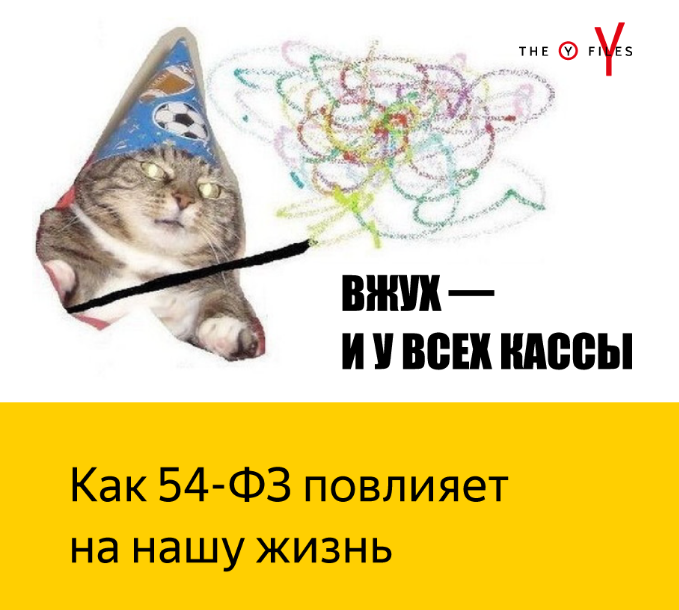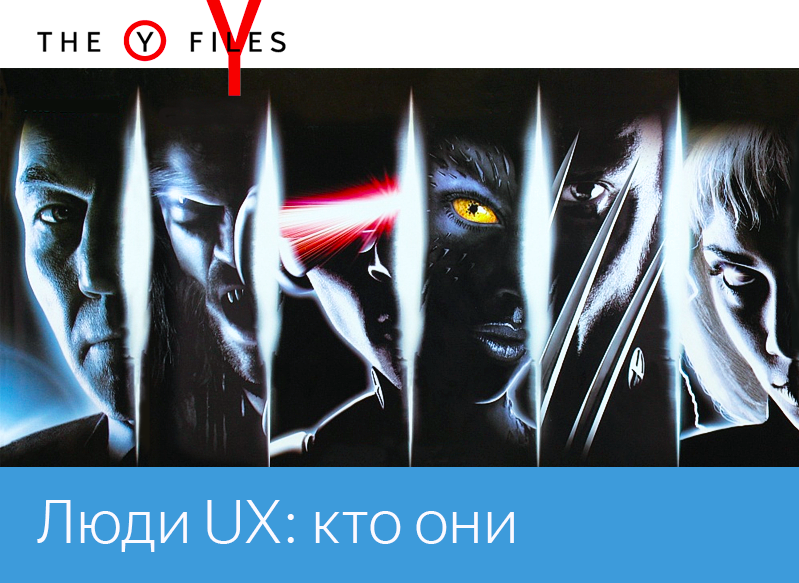How to scratch a panda

At first there was a reasonable and reasonable introduction about HR processes in companies and the like. Then we saw off the reasonable and reasonable and decided to just tell you how we add more meaning to the daily office life.
In the end, you won't surprise anyone with ottomans and cookies, so I’ll tell you about non-public educational projects Yandex.Money. And also about how to share with colleagues how to “move the mountain” without a general mandatory meeting and how to hire people even before they themselves realized that they would become cool specialists.
Made on the sly, technically and for their
It all started with the fact that Yandex.Money was overgrown with microservices so that once a small team of javistes needed several cabinets. All together, they gathered only in the evenings: to share experiences, news and pain. After some time, quiet gatherings turned into internal reports with heated discussions and a noticeable audience.
But the problem was that only “their own” were called for “large backstage meetings,” although the topics were interesting for colleagues from other departments. For example, the operation team did not have this practice, and there was enough curiosity and personal experience. At some point, the main ones from techies and from HR crossed at one point and decided that it was time to go to a new level. This is how the regular internal Techtalks appeared, which now take place twice a month.
If you think that the best way to tighten the qualifications is on paid tuition, then we have news for you. Our company has a budget for courses and conferences, but there are not so many applications from colleagues. Although curiosity does not hold them.
In addition to sharing knowledge, Techtalks brought a side benefit: videotaped meetings were useful for training newbies, and questions and answers for smoothing out the roughness in relations between departments. At least, after the hourly session of the report, you can always ask in public why everything happens as it happens. In ordinary life - without a general meeting in one room - the feedback from other departments would come unbearably long.
Now Techtalks are helping to pump speakers in front of external conferences. It is one thing to run a report in a tight circle with a trainer and colleagues, it is quite another to go on stage in front of an audience of 80 people.
Operating Department ... of what?
Soon all learned about Techtalks. It turned out that designers, analysts, product managers are ready to tell their colleagues about their work - everyone you can imagine in an IT company. At the same time, their reports did not necessarily imply a technical background.
I didn’t want to blur the concept of technical reports, so another internal educational project was born - UNCLASS materials or Y-files. Now, in the best traditions of Mulder and Scully, it was possible to talk not only about technologies, but also about the products, the profession, or their division.
The idea was that any employee (accountant, tester, engineer or secretary, anyone) could listen to the story in a normal human language, without any avian inclusions. As they say, try to explain to your mother what the FZ-54 is and why it threw the whole market into panic, why the interface needed a prototype, and why so many people were needed to develop it.
It is especially interesting to hear about the creation and development of products: the story begins almost from the time of the "big bang" and covers both the idea of creating, for example, City Payments, and the composition of the team and market trends. In the case of payments, there was even a small overview of the legislation on this topic.
The new format has helped colleagues from different departments to realize the importance of each other's work. When everyone understands, “why behind the appearance of one button there is a long work of the whole team,” and why one cannot simply take and change the text, the work becomes more conscious and harmonious.
Once the project is planned massively, then it is impossible to do without the precepts of show business. In every Y-files project, an HR unit and our internal trainer participate. Together they decide how best to uncover the topic proposed by the team and adapt the performance for the masses.

The report, which opened the eyes of colleagues to the sensational law, as an illustration of the principle of "just about complicated."
The content of the report of one of the product teams changed at almost every meeting. But this also benefited: it turned out that before preparing for the performance, not everyone within the team understood who was responsible for what. But in the end sort of sorted out. Although the final report seems to be still different from what they rehearsed.
Sometimes, the discussion of the script and the main "chips" of the speech leaves more than one meeting - no one wants to lose face with their colleagues. Moreover, they watch Y-files from all Yandex.Money offices in Moscow, St. Petersburg and Nizhny Novgorod. Why are they looking there - sometimes the speakers themselves come out from different cities.
Like on Habré, KDPV (picture to attract attention) is also needed at internal seminars. At this stage, designers are connected to the case. They turn "children's drawings" into something worthy and beautiful.

The report of the UX-design team made many non-public colleagues leave the dark (in the literal sense) office. For them, it was a difficult but rewarding experience.
For each report, we come up with a teaser, a description and an individual style - usually this is something based on films and TV shows. In the same style we are preparing a presentation. For all the speakers - usually several people from the team perform - we order branded T-shirts “I am the Y-Files speaker”. Trifle of course, but it helps to motivate speakers: everyone loves unusual T-shirts. Yes, and on the memory after the performance something will remain.
The test runs take the most time — it takes an average of 1.5 calendar months. The speakers speak, the trainer and colleagues listen and give advice. Extra details are removed from the presentation, and interesting details are added. Young speakers get rid of the stage phobia, find themselves oratorical courage and each time feel more confident in front of a large audience.
Once on the report Y-files in the St. Petersburg office the light was cut off. But the projectors and microphones were connected to the emergency line, and the speakers already knew their speech by heart. The report was successful and "by candlelight."
Although, without the syndrome of the student is also not cost - efficiency and frequency of meetings usually increase dramatically before the deadline.
School codes are wonderful
The educational activities within the company are a good thing, but I would like to tell a lot to the outside. Developers, testers and system administrators of Yandex.Money have not one complex project or a unique launch of its kind. So there is a reason to share experience with external IT specialists and listen to their stories and advice.
With this idea, several years ago started the training of developers / testers / designers schools. Today, young professionals get practical skills here.
Schools solve two main tasks:
give free knowledge to those who want to learn,
- prepare internal speakers for external reports and speeches.
There are mercantile considerations. Any school based on the company perfectly covers the need for hiring. If a student immediately learns with regard to local peculiarities, he or she quickly integrates into work processes. You can get rid of the test tasks and multi-stage interviews: students and so fully disclosed, the motivation is immediately visible.
One of the students wanted to attend classes so much that he was seven times higher than the rate of response to a test task to search for bugs - signed for as many as 70 pages. Instead of a boring statement of problems, he wrote a real fairy tale “about Ivanushka”. Now Vanya works in Yandex.Money as a mobile tester.
The organization of any school — from “we want” to first students — takes about 3 months. During this time, you need to decide on the composition of the course and teachers, to develop some unique feature of the school, which would distinguish it from a dozen others. We immediately focused on the practice, which allows us to get a hand and better learn the theory. By the way, many students come with a good baggage of knowledge, but sincerely consider it not worthwhile. We teach such guys to evaluate ourselves objectively.
From the funny recall the manual testing course in 2016. Before the first lecture of the school, we checked everything that could be checked, but the power of an electrician would not be challenged anyway. Due to the interruption of electricity, the presentation was broadcast from the projector upside down. Of course, everything was repaired, but the students and teachers liked the curiosity so much that the inverted name became the school's logo.
What distinguishes "physical" schools from a variety of online courses or webinars is the opportunity not to walk in circles around the incomprehensible, but immediately get help or advice from a mentor. In self-study, no-no, yes, a “plug-in” will occur, and a misunderstood concept will eventually lead to a completely different direction or take many times more time. The advice of a mentor can be obtained even on your own project, after graduation. For this, students adapted Telegram , a group in which, even after completion of school, lives its own life.
As suggested by the hypothesis and confirmed the internal survey, not all employees of Money are aware of the products and components of our service that have appeared in recent years. To fill this gap, we launched entertainment and educational projects like “ Farshmani”. The project was a lot like “What? Where? When? ”But also included the elements of“ Guess the melody ”,“ The mouth of the baby ”,“ One hundred to one ”. It turned out to be a vigorous evening in a narrow circle, with a nostalgic veil.
Engineers love to solve problems, and everyone loves to have fun, so such experiments seem to be the best alternative to dirty teeth “training” internal webinars and compulsory lectures for beginners.
By the way, the question is: how would you react to the offer to complete the “training” quest on the first working day? No, no, this is not about searching for a stapler from the accounting department - something more gamification is meant.
')
Source: https://habr.com/ru/post/336290/
All Articles